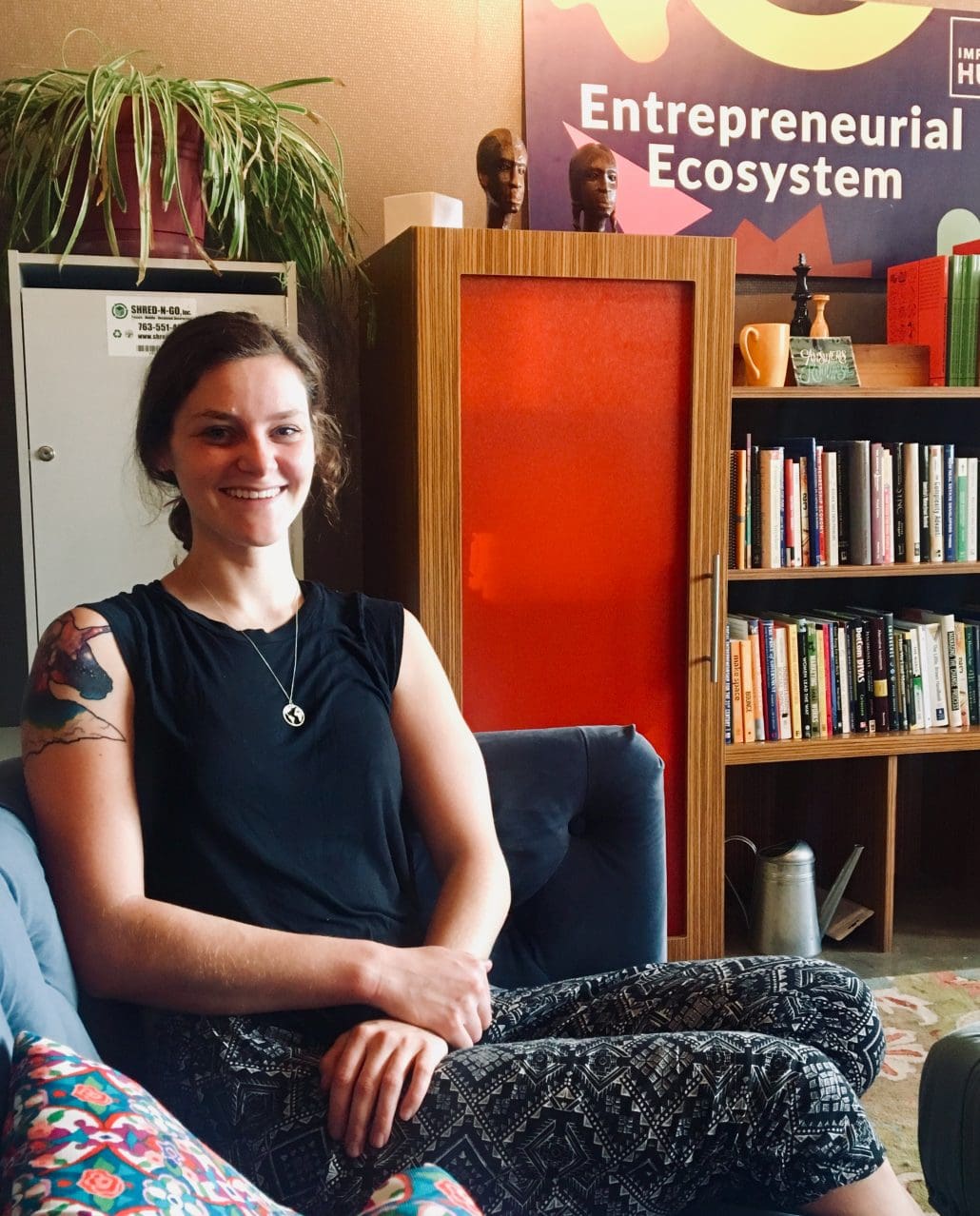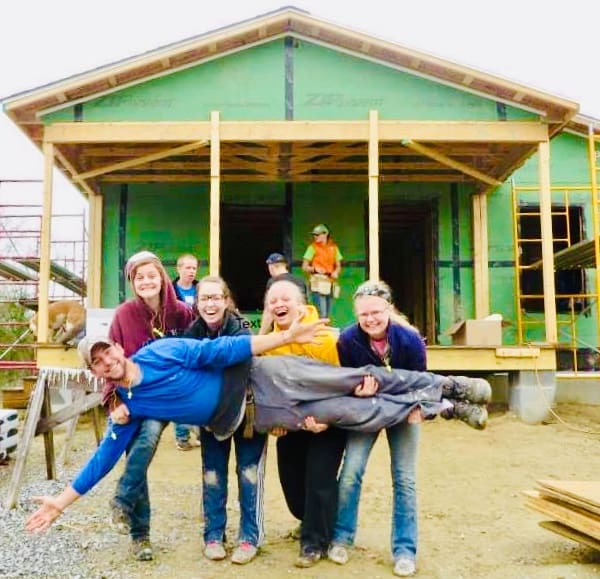This summer, as we think through maintaining and building community, we are highlighting some of Impact Hub’s team members so the community can get a chance to know us better. We recently sat down in our new space with Mia Cannon, Impact Hub’s Community Host, to chat about her thoughts on this month’s themes of social inclusion and leadership.

Mia, what’s your role here at Impact Hub?
My title is Community Host, but our titles at Impact Hub don’t really encompass all the work that we have to do. My role here is community development and program development. I’m kind of the front face when people walk in the door. I make sure that the community is happy, interacting, that they’re finding connections, and that we’re offering programs that fit the needs of their businesses.
And do you find your role to be shifting at all, especially with the recent changes?
Yeah, I think my role has really shifted from when I started here. I think what generally happens is that people come in who are really interested in the work and the mission of Impact Hub, and they find a different way to grow that role outside of what they were generally hired to do. I think being in this new space will help us grow our programming more, so I think that my role will take on more of those responsibilities.
I saw you posted yesterday about the new programs for August. Tell us about that.
Yes, the Skills a la Carte is really exciting. It’s been something that I’ve been working on for a bit in a different sphere, and it emerged into this. We want to offer workshops that give people concrete skills. We don’t want them to walk into a class for a lecture, and walk away with only theoretical ideas We’re looking to do different workshops for different stages of business, so that people can walk out with specific tools and see outcomes right away…kind of hard, fast-hitting information to get them going and solve their needs.
One of the themes this month is social inclusion. What does that term mean to you?
Social inclusion means to me that when someone walks into a space, your focus is on understanding who that person is and where they come from. Everyone was dealt different cards, and some of those cards that you get are automatically better than other people’s cards. And so when you talk about the term “equity,” to me, that is what social inclusion highlights – it’s understanding where people are coming from and understanding that through no fault of their own, their needs might be different than someone else’s needs. Someone who I was talking to recently described it really well. She said in America, there’s this whole bootstrap idea, like put your boots on, strap up, and like, get going! Right? Work hard, and you’ll get there. And she’s like, not everyone is even given boots right away. People don’t even have boots yet to even strap up. So how do we even get those people boots? How do we get people even shoelaces to keep those on once they get there? And so to me, social inclusion really focuses on that equity aspect of bringing people into the space together.
How do you think Impact Hub contributes to social inclusion?
I think my favorite thing about Impact Hub is that I’m always meeting new people, and they’re always doing things that I haven’t heard of before, or I don’t know a lot about. And so when I think of Impact Hub, I think of it as a home. When you go home, you are in this space that welcomes you for who you are. So, Impact Hub is a home for people to be who they are. We welcome them. We assist them in what needs they have, and understand that people are coming from all walks of life.
One of the other themes this month is about leaders. Leadership. Would you mind sharing with us a leader who you admire who has had a positive impact on social inclusion?

The person that I think of is a man named Dave Newell. He is currently the Director of a Leadership Center down in North Carolina. Someone will walk through his door, and he will immediately accept them for who they are; he never wants anybody to pretend. He’s so into authenticity that it immediately welcomes anyone else to be that way.
A really good example is when we were on a Habitat for Humanity trip together, and everyone else was inside playing games, bonding, and being social. I had gone outside with sidewalk chalk and I was drawing and listening to music all by myself. And instead of what I think a lot of people would do, would be like, “Hey, come on, inside, join everybody, like come be a part of the group,” he came and just picked up sidewalk chalk and just started drawing with me. Completely silent, right, completely joining somebody in their little world. Accepting them for who they are, and not necessarily asking them to change to fit who he is. So when I think of social inclusion, I think of meeting someone where they’re at and really taking the time to get to know someone. He did that with any person that walked through the doors, figure out where they were coming from. And he always would let people be their light… he’s amazing. I have so many positive things to say.